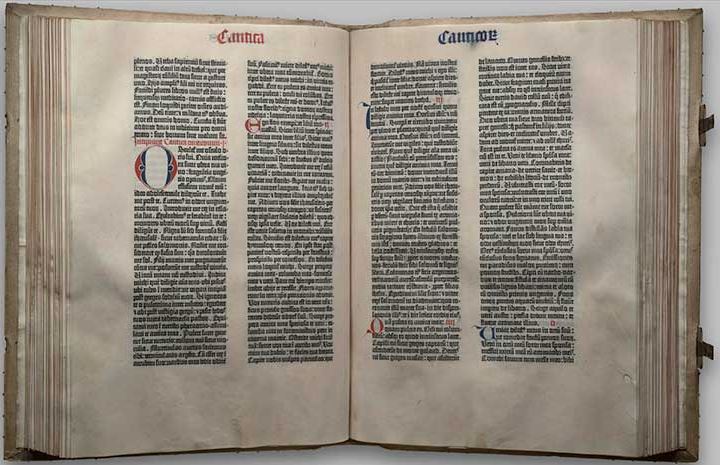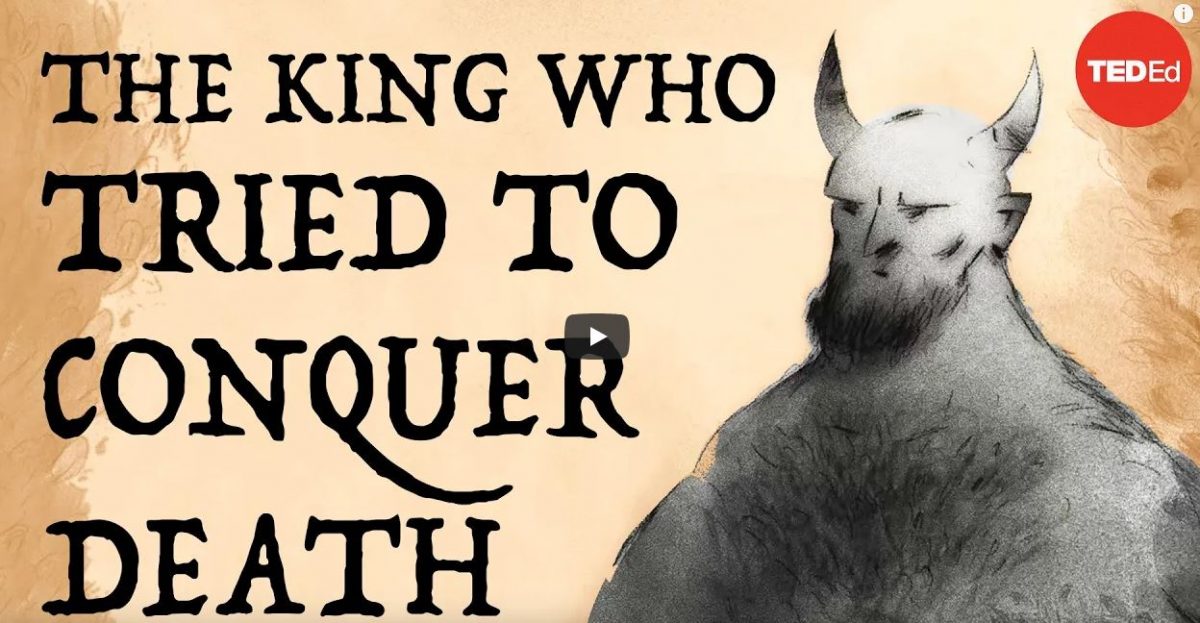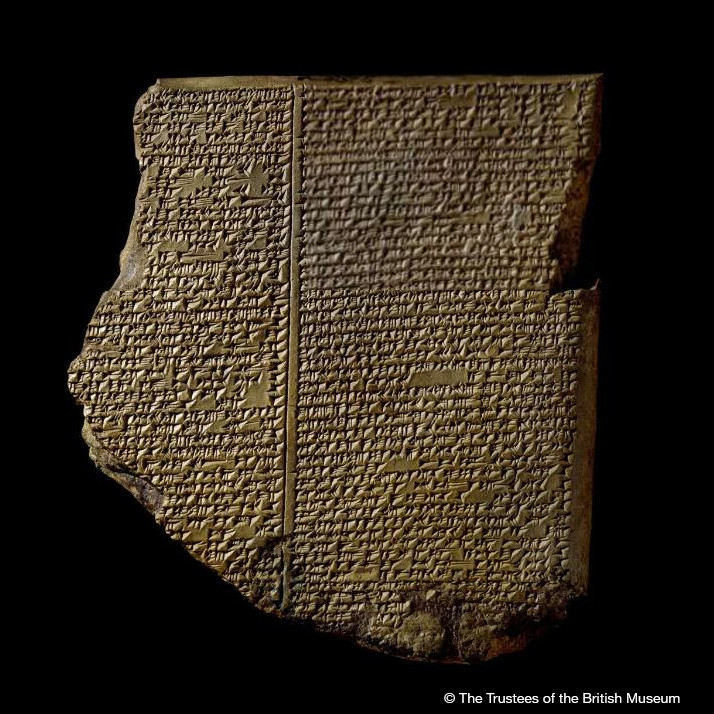The first blog in this series will start with the first book ever written: The Epic of Gilgamesh.
Let’s get started!
Highlights:
- Determining the first book ever written relies on the definition of “book.” A book is a handwritten or printed work of fiction or nonfiction.
- Fragments of the book date back to over 2,000 BC and tell the story of Gilgamesh, a king in search of immortality.
- Marvel Comics and the Marvel Cinematic Universe depict a fictionalized version of Gilgamesh.
- The Epic of Gilgamesh isn’t just the first book in the world, but it’s also the oldest book currently in circulation.
The Epic of Gilgamesh? Not the Bible?
“I thought the Bible was the first book,” some may wonder. It boils down to the definition of the word “book.” Dictionary.com‘s first definition of “book” says it’s “a handwritten or printed work of fiction or nonfiction, usually on sheets of paper fastened or bound together within covers.” The word “usually” in the definition points out that the medium can vary. For instance, today there are literary works on tablets and smartphones, and people refer to them as books. Therefore, we boil down the definition of “book” to a handwritten or printed work of fiction or nonfiction.
The Bible, however, still makes a mark in the category of firsts. It’s the first book ever written on bound parchment paper and the first book in Europe printed from a moveable-type printing press.

The contents of the first book ever written
Fragments of The Epic of Gilgamesh trace back to over 2,000 BC. Archeologists discovered the complete book in the ruins of the Assyrian King Ashurbanipal’s library in Nineveh. These 12 clay tablets date between 1500 and 1200 BC.
Here are excerpts from the story:
- The King of Uruk, Gilgamesh, would sleep with a bride on her wedding night before her husband.
- The gods created the wild man Enkidu to keep Gilgamesh in check.
- After a fight, Gilgamesh and Enkidu become best friends.
- Later, Gilgamesh and Enkidu slay the monster Humbaba.
- Gilgamesh rejects the goddess Ishtar, so she unleashes the Bull of Heaven to kill crops and people in Uruk. As a result, Enkidu dies protecting the city.
- After Enkidu’s death, Gilgamesh journeys out in search of immortality.
- At the end of the world, Gilgamesh finds a bar. The bartender, a goddess, encourages him to enjoy life since all mortals die. However, Gilgamesh refuses to accept the counsel. So the bartender refers him to Utnapishtim, an immortal man who survived a great flood.
- Utnapishtim tells Gilgamesh that the gods may grant him immortality if he conquers sleep, but Gilgamesh fails the trial.
- Utnapishtim then tells Gilgamesh that a plant at the bottom of the ocean grants eternal youth. Although Gilgamesh retrieves the plant, a serpent steals it.
- Upon returning to Uruk, Gilgamesh makes peace with his mortality.

The Epic of Gilgamesh and Bible accounts
There are several resemblances between The Epic of Gilgamesh and bible accounts. Some of the more notable examples are:
- The Flood – The book of Genesis relates the story of Noah’s Ark, where God told Noah to construct the vessel and bring in two of every animal. When the Flood subsides, Noah sends several birds to search for land, and then the ark rests on a mountain. Similarly, in The Epic of Gilgamesh, a god told Utnapishtim to build a boat because a great flood was coming. After making the vessel, he loads it with all sorts of animals. After the storm, he sent out various birds in search of land.
- The Serpent – In the bible, a serpent deceives Eve into eating a fruit from a forbidden tree, and she and Adam lose the ability to live forever. Gilgamesh, too, has in his possession a plant that provides immortality. However, a serpent steals the plant and Gilgamesh’s hope for conquering death.
- Sayings – Similarities exist between the expressions in Ecclesiastes and The Epic of Gilgamesh. Similar language includes “a three-fold cord is hard to break” and “chasing after the wind.”
Gilgamesh in Marvel
The Marvel Cinematic Universe is soon releasing “The Eternals.” One of the characters is a fictionalized version of Gilgamesh, played by Don Lee. Marvel Comics explains the character’s history as “ the king of Uruk in the Middle East. He quested for eternal life unaware that he was actually a member of the race of Eternals, able to live forever.”


